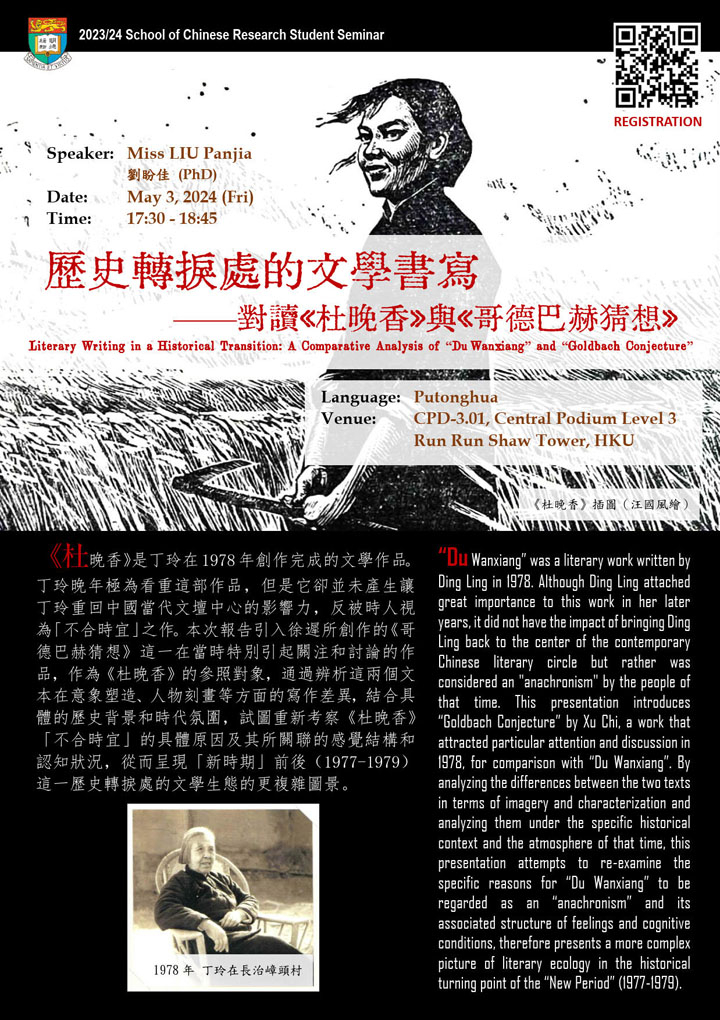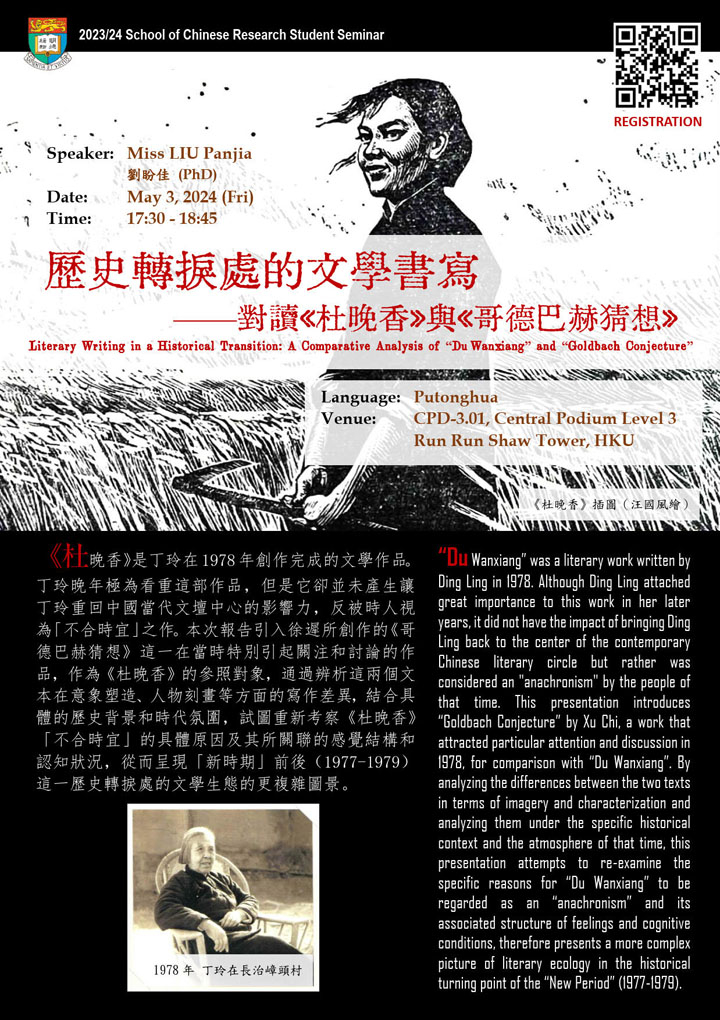歷史轉捩處的文學書寫 ——對讀《杜晚香》與《哥德巴赫猜想》Literary Writing in a Historical Transition: A Comparative Analysis of “Du Wanxiang” and “Goldbach Conjecture”

2023/24 School of Chinese Research Student Seminar
歷史轉捩處的文學書寫
—— 對讀《杜晚香》與《哥德巴赫猜想》
Literary Writing in a Historical Transition: A Comparative Analysis of “Du Wanxiang” and “Goldbach Conjecture”
Abstract:
《杜晚香》是丁玲在1978年創作完成的文學作品。丁玲晚年極為看重這部作品,但是它卻並未產生讓丁玲重回中國當代文壇中心的影響力,反被時人視為「不合時宜」之作。本次報告引入徐遲所創作的《哥德巴赫猜想》這一在當時特別引起關注和討論的作品,作為《杜晚香》的參照對象,通過辨析這兩個文本在意象塑造、人物刻畫等方面的寫作差異,結合具體的歷史背景和時代氛圍,試圖重新考察《杜晚香》「不合時宜」的具體原因及其所關聯的感覺結構和認知狀況,從而呈現「新時期」前後(1977-1979)這一歷史轉捩處的文學生態的更複雜圖景。
“Du Wanxiang” was a literary work written by Ding Ling in 1978. Although Ding Ling attached great importance to this work in her later years, it did not have the impact of bringing Ding Ling back to the center of the contemporary Chinese literary circle but rather was considered an "anachronism" by the people of that time. This presentation introduces “Goldbach Conjecture” by Xu Chi, a work that attracted particular attention and discussion in 1978, for comparison with “Du Wanxiang”. By analyzing the differences between the two texts in terms of imagery and characterization and analyzing them under the specific historical context and the atmosphere of that time, this presentation attempts to re-examine the specific reasons for “Du Wanxiang” to be regarded as an “anachronism” and its associated structure of feelings and cognitive conditions, therefore presents a more complex picture of literary ecology in the historical turning point of the “New Period” (1977-1979).








